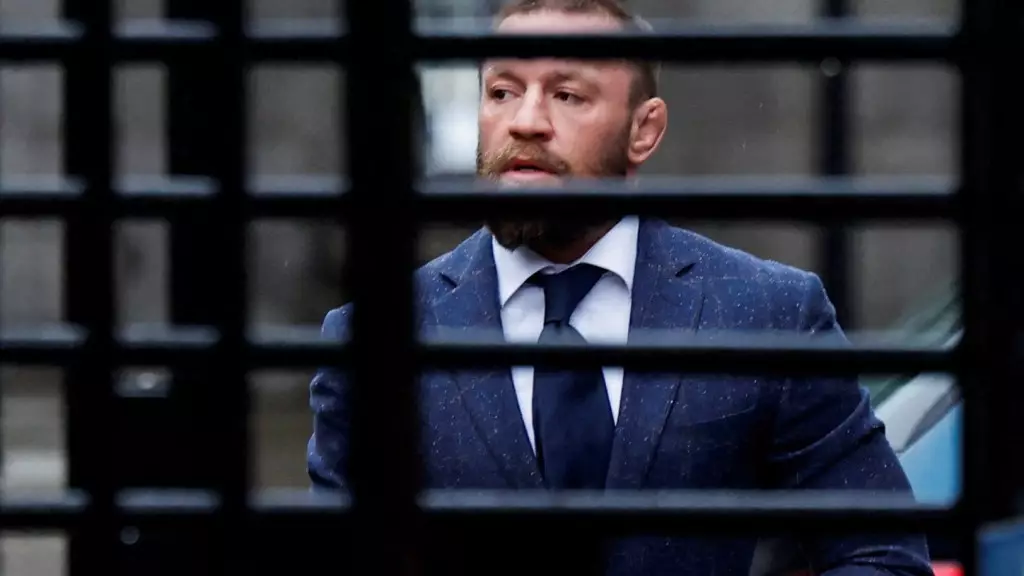Conor McGregor, the famed UFC fighter, is no stranger to scrutiny, both inside and outside the octagon. However, following a recent jury verdict deeming him liable for sexual assault, McGregor is now facing an unexpected wave of public reaction and potential career repercussions. His public statement, which expresses regret for his actions while seemingly minimizing their severity, has ignited significant debate about accountability, morality, and the influence of celebrity culture.
The legal troubles surrounding McGregor stem from an incident in December 2018, when he was accused of sexually assaulting Nikita Hand after a night out. A jury, after a protracted 12-day trial, concluded that McGregor was indeed responsible for the assault, awarding Hand damages approximating $250,000. While the verdict has concluded the judicial aspect, it has opened wider discussions regarding masculinity, consent, and the societal tropes within the realm of celebrity.
What is particularly troubling is not just the verdict itself, but the fact that McGregor’s response appears heavily focused on his image and the regret associated primarily with his personal relationships—most notably, the impact on his long-term partner, Dee Devlin, and their children. While acknowledging his missteps, McGregor continues to assert that everything was consensual, which not only undermines the findings of the jury but also sends mixed signals about the significance of accountability for one’s actions.
The mixed messaging in McGregor’s statements raises questions about how public figures perceive their accountability. It’s telling that he did not express direct remorse for the actions that led to Hand’s distress but framed his regret around the fallout on his personal life. This is indicative of a broader concern in celebrity culture where public figures often protect their reputations over addressing the harms caused to their victims.
Additionally, the reaction from the brands associated with McGregor has been relatively muted, particularly from the UFC, which has historically positioned itself as a formidable entity in the sports world. In contrast, IO Interactive’s decision to remove his character from the video game “Hitman” demonstrates that some companies are taking a firmer stance on association with controversial figures, raising ethical questions for others yet to respond.
McGregor’s assertion that he will continue to move forward and return to the gym highlights a critical aspect of his character: his relentless drive. Yet, the question remains—what does moving forward mean in the context of legal implications and personal accountability? He has indicated plans to appeal the jury’s decision, which may prolong the discourse surrounding the incident and his public persona.
The implications of this case extend beyond McGregor’s personal life and career; they touch on systemic issues regarding how society handles allegations of sexual misconduct, particularly when it involves influential figures. It invites a necessary dialogue about the consequences of behavior that, as highlighted by the jury, cannot be dismissed or brushed aside as mere mistakes.
As the aftermath of the trial continues to unfold, McGregor’s predicament serves as a reflection of our cultural landscape. It emphasizes the need for a recalibration of what accountability looks like, especially for public figures. The complexities of fame often enable a disconnect from reality, where consequences can seem intangible. However, the legal verdict against him points to a growing societal insistence that individuals are held to account, regardless of their celebrity status.
While McGregor’s story is still developing, it undoubtedly reveals fundamental challenges in addressing and reconciling actions that impact others deeply. The ongoing discourse will not only influence McGregor’s public image but will also play a crucial role in shaping future discussions about the expectations we hold for our public figures, the legal systems involved, and the societal norms we uphold.

